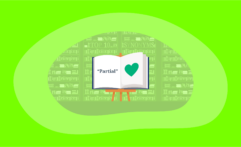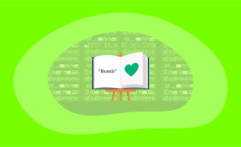Top 10 Positive & Impactful Synonyms for “Flustered” (With Meanings & Examples)
Affiliate Disclosure
Hey fellow impactful ninja ?
You may have noticed that Impactful Ninja is all about providing helpful information to make a positive impact on the world and society. And that we love to link back to where we found all the information for each of our posts.
Most of these links are informational-based for you to check out their primary sources with one click.
But some of these links are so-called "affiliate links" to products that we recommend.
Why do we add these product links?
First and foremost, because we believe that they add value to you. For example, when we wrote a post about the environmental impact of long showers, we came across an EPA recommendation to use WaterSense showerheads. So we linked to where you can find them. Or, for many of our posts, we also link to our favorite books on that topic so that you can get a much more holistic overview than one single blog post could provide.
And when there is an affiliate program for these products, we sign up for it. For example, as Amazon Associates, we earn from qualifying purchases.
What do these affiliate links mean for you?
First, and most importantly, we still only recommend products that we believe add value for you.
When you buy something through one of our affiliate links, we may earn a small commission - but at no additional costs to you.
And when you buy something through a link that is not an affiliate link, we won’t receive any commission but we’ll still be happy to have helped you.
What do these affiliate links mean for us?
When we find products that we believe add value to you and the seller has an affiliate program, we sign up for it.
When you buy something through one of our affiliate links, we may earn a small commission (at no extra costs to you).
And at this point in time, all money is reinvested in sharing the most helpful content with you. This includes all operating costs for running this site and the content creation itself.
What does this mean for me personally?
You may have noticed by the way Impactful Ninja is operated that money is not the driving factor behind it. It is a passion project of mine and I love to share helpful information with you to make a positive impact on the world and society. However, it's a project in that I invest a lot of time and also quite some money.
Eventually, my dream is to one day turn this passion project into my full-time job and provide even more helpful information. But that's still a long time to go.
Stay impactful,
Stimulated, invigorated, and sparked—positive and impactful synonyms for “flustered” enhance your vocabulary and help you foster a mindset geared toward making a positive impact. So, we had to ask: What are the top ten positive & impactful synonyms for “flustered”?
The top 10 positive & impactful synonyms for “flustered” are stimulated, animated, invigorated, enlivened, refreshed, energized, roused, galvanized, motivated, and sparked. Using these synonyms helps you enhance both your communication and psychological resilience in several meaningful ways.
In the table below, you can see all these top ten synonyms including their descriptions, why they are positive and impactful synonyms for “flustered,” and example sentences that highlight how you can use each of these. We’ll then also share ten benefits of why you should use these synonyms, ten interesting facts about the word “flustered,” and a brief history of the development of our alphabet.
Here Are the Top 10 Positive & Impactful Synonyms for “Flustered”
Our list of positive & impactful synonyms for “flustered” help you expand your vocabulary and enhance both your communication and psychological resilience in several meaningful ways (you can read more about it in the next section).
That’s why it’s so important to focus on synonyms that can be used in a positive and impactful way.
Flustered: agitated or confused
Oxford Dictionary
Our top ten synonyms for “flustered” exemplify the beauty of our language—their meaning is not just fixed but can be shaped by the context they are used in.
| Synonym | Description | Example Sentence |
| Stimulated | Excited or energized, ‘Stimulated’ suggests a positive arousal from a state of calm, similar to ‘flustered’ but with an emphasis on the resultant productivity. | “She felt stimulated by the lively debate, ready to contribute her ideas.” |
| Animated | Full of life or excitement, ‘Animated’ conveys the enthusiasm and vigor that can follow a flustered moment, focusing on the positive energy. | “His animated response revealed his passion for the topic.” |
| Invigorated | Given strength or energy, ‘Invigorated’ highlights the rejuvenation that can come from overcoming a flustered state. | “After the initial shock, she felt invigorated and ready to face the challenge.” |
| Enlivened | Made lively or spirited, ‘Enlivened’ suggests being brought out of a state of calm or monotony, akin to the positive side of feeling ‘flustered’. | “The unexpected question enlivened her spirits, pushing her to think creatively.” |
| Refreshed | Given new strength or energy, ‘Refreshed’ emphasizes renewal, suggesting a beneficial outcome from a moment of feeling flustered. | “Feeling refreshed after the brisk discussion, she approached the problem with new insight.” |
| Energized | Supplied with energy, ‘Energized’ focuses on the boost in vitality, often following a moment of agitation or being flustered. | “He was energized by the fast-paced nature of the workshop.” |
| Roused | Stirred or excited, ‘Roused’ captures the awakening or stimulation that being flustered can provoke, leading to heightened awareness. | “She was roused to action by the unexpected turn of events.” |
| Galvanized | Stimulated to action, ‘Galvanized’ implies a strong motivational response to being flustered, encouraging decisive action. | “Galvanized by the tight deadline, the team worked with renewed focus.” |
| Motivated | Provided with a reason to act, ‘Motivated’ suggests a positive push towards goal achievement, related to the drive that can come from feeling flustered. | “The challenging puzzle motivated her to apply her best problem-solving skills.” |
| Sparked | Ignited or initiated, ‘Sparked’ implies the beginning of enthusiasm or creativity as a result of a flustering experience. | “The heated discussion sparked a groundbreaking idea in his mind.” |
10 Benefits of Using More Positive & Impactful Synonyms
Our positive & impactful synonyms for “flustered” help you expand your vocabulary and enhance both your communication and psychological resilience in several meaningful ways:
- Encouraging Positive Framing: Using positive synonyms allows for a more optimistic and affirmative way of expressing thoughts. This can influence not only the speaker’s or writer’s mindset but also positively impact the audience’s perception and reaction.
- Improving Emotional Intelligence: Learning different positive synonyms helps in accurately expressing emotions. This aids in emotional intelligence, as one can more precisely convey feelings and understand the emotions of others.
- Enhancing Persuasive Communication: In persuasive writing and speaking, using positive synonyms can be more effective in convincing an audience, as people generally respond better to positive language.
- Broadening Emotional Vocabulary: A range of positive synonyms enriches your emotional vocabulary. It’s one thing to say you’re “happy” and another to express that you’re “elated,” “joyful,” or “content.” Each word carries a unique emotional hue.
- Creating a Positive Atmosphere: The use of positive language can create a more constructive and encouraging atmosphere in both personal and professional settings. This can lead to better teamwork, more effective communication, and improved interpersonal relationships.
- Enhancing Creative Writing: For those engaged in creative writing, a repertoire of positive synonyms can help in vividly depicting scenes, characters, and emotions, making the narrative more engaging and lively.
- Improving Mental Health and Well-being: Regularly using and thinking in terms of positive words can influence one’s mental state and outlook on life. Positive language has been linked to greater well-being and a more optimistic outlook.
- Improving Cognitive Flexibility: Expanding your vocabulary with positive synonyms enhances your cognitive flexibility. This means you become more adept at thinking creatively and adapting your language use to different situations. The mental exercise involved in learning and using a variety of positive words can also contribute to overall cognitive health, keeping your mind sharp and responsive.
- Building Social Skills and Empathy: When you have a variety of positive words at your disposal, you’re better equipped to offer compliments, encouragement, and empathetic responses in social interactions.
- Facilitating Conflict Resolution: In situations of conflict, the use of positive language can help de-escalate tension. Having a range of positive synonyms allows for more constructive and diplomatic communication.
Overall, your use of positive synonyms not only broadens your vocabulary but also positively influences your thought processes, emotional expression, and interpersonal interactions.
10 Interesting Facts About the Word “Flustered”
Let’s take a step back and have a look at some interesting facts about the word “flustered”.
- Etymology: The word “flustered” originates from the late 15th century, evolving from the verb “fluster,” which meant to excite or agitate. The exact origin is unclear but it’s thought to be of Scandinavian origin, akin to Icelandic “flaustra,” meaning to hurry or rush.
- Historical Usage: Initially, “fluster” had a physical sense related to movement or agitation. Over time, its usage expanded to describe emotional disturbance or confusion.
- Psychological Relevance: Being flustered is often associated with a mild form of stress or anxiety, where an individual feels temporarily out of control or overwhelmed.
- Body Language: When someone is flustered, it can manifest in physical signs, such as blushing, sweating, or fidgeting, indicating the body’s response to sudden discomfort or embarrassment.
- Cultural Interpretations: The perception and acceptance of being flustered vary among cultures, with some viewing it as a natural, human reaction, while others might see it as a sign of weakness or unpreparedness.
- In Literature: Characters described as flustered in novels or stories are often in the midst of personal growth or conflict resolution, making it a tool for character development.
- Impact on Performance: Being flustered can impact an individual’s performance, especially in high-pressure situations like public speaking or competitive events.
- Social Interactions: In social contexts, showing flustered behavior might elicit sympathy or assistance from others, as it’s a visible cue of distress.
- Therapeutic Discussion: In therapy, discussing moments when one feels flustered can lead to insights about personal triggers and coping mechanisms.
- Language Evolution: The use of “flustered” has expanded in modern language to include a broad spectrum of emotional states, from slight embarrassment to significant agitation, showcasing its adaptability in expressing complex emotional experiences.
A Brief History of Our Alphabet
The story of our alphabet has a rich and compelling history, beginning with ancient civilizations and carrying forward into the present day.
The history of our modern alphabet is a fascinating journey that spans several millennia and cultures. It’s commonly referred to as the Latin or Roman alphabet, and here’s a brief overview of its evolution:
- Phoenician Alphabet (circa 1050 BCE): The story begins with the Phoenician alphabet, one of the oldest writing systems known to use a one-to-one correspondence between sounds and symbols. This Semitic alphabet had about 22 consonants, but no vowels, and was primarily used for trade.
- Greek Alphabet (circa 800 BCE): The Greeks borrowed and adapted the Phoenician script. Crucially, they introduced vowels, making it one of the first true alphabets where each symbol represented a distinct sound (both vowel and consonant). The Greek alphabet had a significant influence on the development of other alphabets.
- Etruscan Alphabet (circa 700 BCE): The Etruscan civilization in Italy adapted the Greek alphabet to their own language. While Etruscan was largely replaced by Latin, their version of the alphabet was a key predecessor to the Roman one.
- Latin Alphabet (circa 700 BCE – Present): The Latin alphabet emerged from the adaptation of the Etruscan script. Ancient Rome used this alphabet, and it spread across Europe as the Roman Empire expanded. The original Latin alphabet did not contain the letters J, U, and W. These were added much later along with other modifications to suit different languages and phonetic needs.
- Modern Variations: Today, the Latin alphabet is the most widely used alphabetic writing system in the world. It has undergone various changes to accommodate different languages and sounds. For instance, English—among other languages—added letters like ‘J’, ‘U’, and ‘W’, while other languages incorporate additional characters like ‘Ñ’ in Spanish or ‘Ç’ in French.
This evolution reflects not just linguistic changes but also cultural and historical shifts, as the alphabet was adapted by different societies across centuries.
Final Thoughts
Expanding your vocabulary is akin to broadening your intellectual horizons and enhancing your capacity to express your thoughts and emotions with precision. By embracing additional synonyms for “flustered,” you’re not just learning new terms, but you’re also gaining nuanced ways to communicate positivity and impact.
The more words you have at your disposal, the more accurately and vividly you can paint your thoughts into speech and writing. So, by growing your vocabulary, especially with positive and impactful words, you’re empowering yourself to engage more effectively and inspiringly with the world around you.
Stay impactful,

Sources
- Society for Personality and Social Psychology: Why a Simple Act of Kindness Is Not as Simple as It Seems: Underestimating the Positive Impact of Our Compliments on Others
- Journal of Personality: Psychological Resilience and Positive Emotional Granularity: Examining the Benefits of Positive Emotions on Coping and Health
- David Sacks: Letter Perfect: The Marvelous History of Our Alphabet From A to Z
- Impactful Ninja: Positive & Impactful Words Starting With A
- Impactful Ninja: Positive & Impactful Words Starting With B
- Impactful Ninja: Positive & Impactful Words Starting With C
- Impactful Ninja: Positive & Impactful Words Starting With D
- Impactful Ninja: Positive & Impactful Words Starting With E
- Impactful Ninja: Positive & Impactful Words Starting With F
- Impactful Ninja: Positive & Impactful Words Starting With G
- Impactful Ninja: Positive & Impactful Words Starting With H
- Impactful Ninja: Positive & Impactful Words Starting With I
- Impactful Ninja: Positive & Impactful Words Starting With J
- Impactful Ninja: Positive & Impactful Words Starting With K
- Impactful Ninja: Positive & Impactful Words Starting With L
- Impactful Ninja: Positive & Impactful Words Starting With M
- Impactful Ninja: Positive & Impactful Words Starting With N
- Impactful Ninja: Positive & Impactful Words Starting With O
- Impactful Ninja: Positive & Impactful Words Starting With P
- Impactful Ninja: Positive & Impactful Words Starting With Q
- Impactful Ninja: Positive & Impactful Words Starting With R
- Impactful Ninja: Positive & Impactful Words Starting With S
- Impactful Ninja: Positive & Impactful Words Starting With T
- Impactful Ninja: Positive & Impactful Words Starting With U
- Impactful Ninja: Positive & Impactful Words Starting With V
- Impactful Ninja: Positive & Impactful Words Starting With W
- Impactful Ninja: Positive & Impactful Words Starting With X
- Impactful Ninja: Positive & Impactful Words Starting With Y
- Impactful Ninja: Positive & Impactful Words Starting With Z




